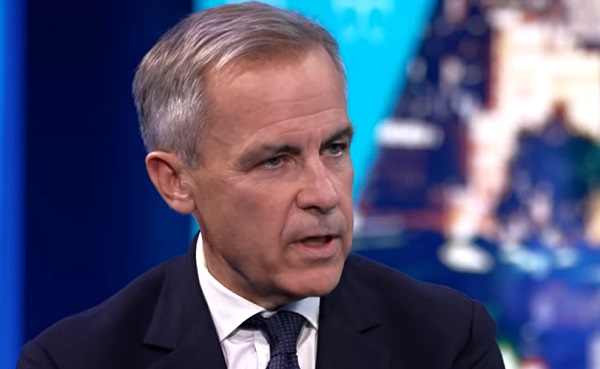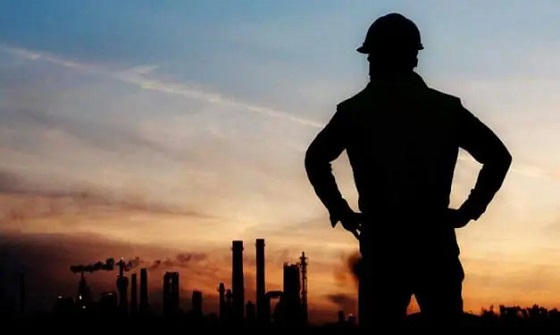National
Two Liberal ministers suggest Mark Carney will call election after being sworn in as PM

From LifeSiteNews
Both Public Works Minister Jean-Yves Duclos and Industry Minister Francois Phillipe-Champagne have hinted that a federal election is coming sooner than later now that the Liberals have selected their new leader, Mark Carney.
Two Liberal Party ministers have hinted that their new leader, Mark Carney, will call a federal election shortly after being sworn in as prime minister this Friday.
Earlier this week, outgoing Prime Minister Justin Trudeau’s Public Works Minister Jean-Yves Duclos told reporters directly that Canadians will soon head to the polls. He made the comments considering both Carney being the new leader, and the fact that all opposition parties have said they would vote non-confidence against the Liberal minority government once parliament resumes on March 24.
“The opposition parties have been very clear for weeks and months now,” said Duclos, according to Blacklock’s Reporter. “They decided they would bring this government down regardless of what we could do.”
The Liberal Party on Sunday night elected self-proclaimed globalist and World Economic Forum-linked former central banker Carney as the new leader. Carney will be sworn in as PM this Friday.
In January, after announcing he would resign, Trudeau prorogued Parliament until March 24. A general election will take place sometime in late April or early May, should Carney officially ask the Governor General to dissolve parliament before March 24, which is expected.
Because Parliament is prorogued until March, Duclos said that this is “the last day we can be in government.”
“We’ll see whether we should call an election before.”
When a reporter asked him how “quickly” an election would come, Duclos replied, “We know the deadline is March 24.”
In addition to Duclos, Industry Minister Francois Phillipe-Champagne on Sunday, after Carney was elected, told reporters, “I think we’ve said we’re going to go to the polls to get a strong mandate fairly quickly so that we can have not only the team –the Liberal team–but the whole Canadian team with us.”
“I think Canadians are ready for that, they want a strong team,” he added.
Election needed now, says opposition leader Pierre Poilievre
Leader of the Conservative Party of Canada (CPC) and official opposition Pierre Poilievre told reporters on Monday that not only should an election be called now, but that Carney is “trying to distract from his many scandals and conflicts of interest as well as his disastrous record as Justin Trudeau’s economic advisor by talking about Trump.”
“He’s the guy who sold out to Trump,” said Poilievre, adding that six days after U.S. President Donald Trump “threatened Canada” with tariffs “to steal our jobs,” Carney “announced to Brookfield shareholders that he would move his headquarters from Canada to New York.”
“And when you asked him about it, he lied to your face,” he added.
Poilievre said the CPC has it “in writing and we proved it.”
“He sold out Canada. He put his profit ahead of our people and he did exactly what Donald Trump wanted. Never before have we had a prime minister so conflicted and compromised and yet so little scrutinized,” he added.
On Sunday, outgoing Prime Minister Trudeau in his last speech before Liberal Party supporters boasted about his government’s anti-life, pro-abortion agenda, as well as the party’s legalization of “same-sex marriage,” which happened 20 years ago.
Energy
It should not take a crisis for Canada to develop the resources that make people and communities thrive.

From Resource Works
Canada is suddenly sprinting to build things it slow-walked for a decade.
“Canada has always been a nation of builders, from the St. Lawrence Seaway to Expo 67. At this hinge moment in our history, Canada must draw on this legacy and act decisively to transform our economy from reliance to resilience. We are moving at a speed not seen in generations,” announced Prime Minister Mark Carney at the end of August.
He was echoed by British Columbia Premier David Eby shortly after.
“There’s never been a more critical time to diversify our economy and reduce reliance on the U.S., and B.C. is leading the way in Canada, with clean electricity, skilled workers and strong partnerships with First Nations,” the premier stated after his government approved the Ksi Lisims LNG project, led by the Nisga’a nation.
In the face of President Donald Trump’s tariffs, Ottawa has unveiled a first wave of “national projects” that includes an expansion of LNG Canada to 28 million tonnes a year, a small modular reactor at Darlington, two mines, and a port expansion, all pitched as a way to “turbocharge” growth and reduce exposure to a trade war with the United States.
The list notably excludes new oil pipelines, and arrives with rhetoric about urgency and nation-building that begs a simple question: why did it take a crisis to prioritize what should have been routine economic housekeeping?
The most tangible impact of resource projects can be observed in the impact it has on communities. The Haisla Nation is enjoying an economic renaissance with their involvement in the LNG Canada project on their traditional lands, which became operational in June.
Furthermore, the Haisla are set to unveil their own facility, Cedar LNG, in 2028. Already, the impact of employment and strong paycheques in the community is transforming, as former Haisla Chief Councillor Crystal Smith as attested many times.

Former Haisla Chief Councillor Crystal Smith.
“Let’s build a bright and prosperous future for every Canadian and every Indigenous person that wants to be involved, because change never happens inside of our comfort zones, or the defensive zone,” said Crystal Smith at a speech delivered to the 2025 Testimonial Dinner Award on April 24 in Toronto.
Fortunately, the new pro-resource posture has a legislative backbone. Parliament passed the One Canadian Economy Act to streamline approvals for projects deemed in the national interest, a centrepiece of the government’s plan to cut internal trade barriers and fast-track strategic infrastructure.
Supporters see it as necessary in a period of economic rupture, while critics warn it risks sidelining Indigenous voices in the name of speed. Either way, it is an admission that Canada’s previous processes had become self-defeatingly slow.
British Columbia offers a clear case study. Premier David Eby is now leaning hard into liquefied natural gas. His government and Ottawa both approved the Nisga’a Nation-backed Ksi Lisims LNG project under a “one project, one review” approach, with Eby openly counting on the Nisga’a to build support among neighbouring nations that withheld consent.
It is a marked turn from earlier NDP caution, framed by the premier as a race against an American Alaska LNG push that could capture the same Asian markets.
Yet the pivot only underscores how much time was lost. For years, resource projects faced overlapping provincial and federal hurdles, from the Impact Assessment Act’s expanded federal reach to the 2018 federal tanker ban on B.C.’s north coast.
Within B.C., a thicket of regulations, policy uncertainty, and contested interpretations of consultation obligations chilled investment, while political positions on pipelines hardened. Industry leaders called it “regulatory paralysis.” These were choices, not inevitabilities.
The national “go-fast” stance also arrives with unresolved tensions. Ottawa has installed a Calgary-based office to clear and finance major projects, led by veteran executive Dawn Farrell, and is touting the emissions performance of LNG Canada’s expansion.

Dawn Farrell, head of the Major Projects office in Calgary.
At Resource Works, we wholeheartedly endorsed the move, given the proven ability and success of Dawn Farrell in the resource industry. It must also be acknowledged that the major projects office will only be an office unless it meaningfully makes these projects happen faster.
A decade that saw eighteen B.C. LNG proposals produced one major build, and moving to LNG Canada’s second phase is entangled with power-supply constraints and policy conditions. That slow cadence is how countries fall behind.
If the current urgency becomes a steady habit, Canada can still convert this scramble into lasting capacity. If not, the next shock will find us sprinting again, only further from the finish line.
Resource Works News
Energy
A picture is worth a thousand spreadsheets

From Resource Works
What if the secret to understanding Canada’s energy future lies not in spreadsheets but in storytelling?
When I think about who has done the most to make sense of Canada’s energy story — not just in charts and forecasts but in human terms — Peter Tertzakian sits near the top of that list. He’s an energy economist, author, and communicator who has spent decades helping Canadians understand the world beneath their light switches and fuel gauges — and why prosperity, energy, and responsible development are inseparable.
Peter is the founder and CEO of Studio.Energy. He is also widely known as the founder of the ARC Energy Research Institute and co-host of the ARC Energy Ideas podcast, alongside Jackie Forrest. Week after week, they unpack what’s happening in the markets, in technology, and in policy, always with the rare gift of clarity. He’s also the author of two influential books, A Thousand Barrels a Second and The End of Energy Obesity, both written long before “energy transition” became a household term.
When we sat down for our Power Struggle conversation, I mentioned how remarkable it is that someone with Peter’s credentials — an economist, investor, and advisor to industry — is also an exhibiting artist whose photography can regularly be found in a gallery in the Canadian Rockies. That’s when he smiled and said what has become one of his signature lines: “I’ve always said a picture is worth a thousand spreadsheets.”

What followed was a fascinating discussion about how visual storytelling can bridge the gap between data and understanding. Peter explained that what began as a hobby has evolved into a personal quest to communicate complex energy subjects more effectively. His photographs, which range from industrial scenes to landscapes shaped by human activity, help connect the emotional and analytical sides of the energy story. The pictures, he said, reveal the same truths that his spreadsheets do — only in a way that more people can feel.
That resonates deeply with what we do at Resource Works — translating complexity into clarity so that Canadians can see how responsible resource development strengthens communities, funds public services, and opens doors for Indigenous partnerships. Like Peter, we believe that understanding energy isn’t about choosing sides; it’s about understanding systems, trade-offs, and the people behind the numbers.
Peter’s concern — and one I share — is how difficult it has become to find truth amid the noise. “People are bombarded by noise, especially today. And not all of that noise is true,” he said. “The challenge now is extracting the signal.” Whether you’re a policymaker, a corporate leader, or just someone trying to make sense of global change, Peter’s approach is to step away from confrontation and toward comprehension. His ability to blend visuals, narrative, and numbers makes complicated issues accessible without oversimplifying them.
Prosperity, Not Population, Drives Energy Demand
Our conversation also turned to the forces shaping global energy demand. Peter reminded me that the biggest driver isn’t population growth — it’s prosperity. “When a person moves from a rural setting to a city, their energy consumption goes up twentyfold, sometimes more,” he said. The story of urbanization, particularly in China, explains much of the past few decades of energy growth. Renewables have slowed that curve, but as Peter points out, “our use of fossil fuels is still growing.”
What I most admire about Peter is that he doesn’t preach. “I don’t have all the answers,” he told me. “My role is to discuss treatment options — not to perform the surgery.” It’s a refreshingly honest stance in a world where too many experts claim certainty.
On Power Struggle, Peter Tertzakian reminded me why he’s so respected across the energy world: he brings intelligence without ego, curiosity without ideology, and a deep respect for the audience’s ability to think. His work reminds us that Canada’s resource story — when told with honesty and creativity — is one of innovation, community, and shared prosperity. And that storytelling — visual, verbal, and numerical — remains our most powerful tool for navigating change.
- Power Struggle audio and transcript
- Peter Tertzakian in Arc Energy Research Institute podcasts
- Peter Tertzakian on X
- Peter Tertzakian on LinkedIn
- Stewart Muir on X
- Stewart Muir on LinkedIn
Power Struggle on social media
-

 Business2 days ago
Business2 days agoMark Carney Seeks to Replace Fiscal Watchdog with Loyal Lapdog
-

 Business2 days ago
Business2 days agoP.E.I. Moves to Open IRAC Files, Forcing Land Regulator to Publish Reports After The Bureau’s Investigation
-

 International1 day ago
International1 day agoIs America drifting toward civil war? Joe Rogan thinks so
-

 Energy2 days ago
Energy2 days agoCanada’s oilpatch shows strength amid global oil shakeup
-

 Censorship Industrial Complex1 day ago
Censorship Industrial Complex1 day agoEU’s “Democracy Shield” Centralizes Control Over Online Speech
-

 COVID-192 days ago
COVID-192 days agoMajor new studies link COVID shots to kidney disease, respiratory problems
-

 Fraser Institute21 hours ago
Fraser Institute21 hours agoCourts and governments caused B.C.’s property crisis—they’re not about to fix it
-

 Alberta18 hours ago
Alberta18 hours agoChatGPT may explain why gap between report card grades and standardized test scores is getting bigger




